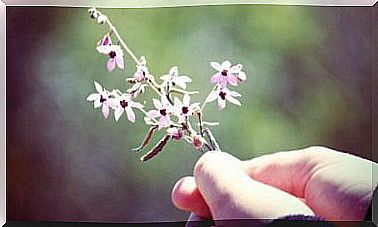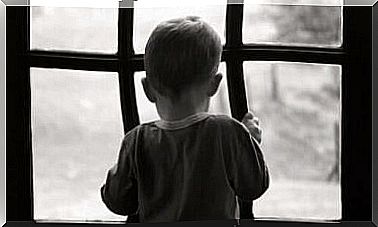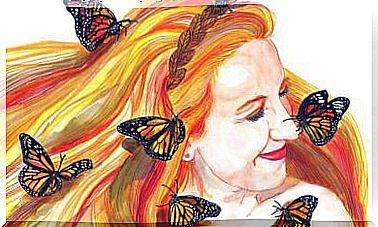Knowing How To Wait Is Not Weakness, But Courage

Knowing how to wait… Wait for the time necessary for the seeds to germinate, so that feelings appear and facts provide signals. Everything has its time, its own rhythms, even if we refuse to accept it.
If we take a break and look around us, we will find that everything is moving in one way or another. It is the flow of life, the creative impulse of change, that which feeds on everything that happens to cultivate results.
Waiting is the time for boredom, laziness, impatience; but it is also the waiting room that shelters us, the art of patience and the path of learning. Often voluntary and sometimes almost unthinkable.
We can even say that the wait is the time duration of that desire that we hope to germinate, bear fruit, but with the quiet strength instead of acceleration.
The chaos of ‘living fast’
Byung-Chul Hal, a philosophical specialist in cultural studies and professor at the University of the Arts in Berlin, says in his book ‘The Fatigue Society’ that 21st century society is no longer a society of discipline, but one of performance, in which the power to do without limits stands out.
Today, we all want to do more in less time. We live fast-paced and pressured in a world of excess stimuli, more concerned with results than with the path.
The problem is that ignoring the steps we take and the way we walk leads to physical, mental and occupational burnout.
Furthermore, our perception is fragmented from so much stimulation. Now we are multitasking, we do everything and nothing at the same time.
According to Byung-Chul Hal, multitasking is not progress but regression, because it impedes contemplation and deep attention. We live above, on tiptoe, without submerging ourselves in experiences and with an unbridled pace of life.

We don’t like to wait anymore, it ‘s hard to be patient because we want everything instantly, immediately and impulsively, without being aware of the consequences…
Stress, anxiety, depression, boredom or even uncomfortable living during rest time. We are uncomfortable because we have nothing to do, because we are facing each other and we are not prepared for it.
Boredom is an enemy and we immediately look for a task, something that takes up our time. And in the midst of this turmoil, we forget that pure agitation does not generate anything new and, in turn, we lose the ‘gift of listening’, as philosopher Walter Benjamin says.
In short, we get lost in a spiral of hyperactivity, stress and restlessness.
the pleasure of waiting
What would happen if we stopped? Would we discover something if we slowed down our march? How would we feel? Stopping and interrupting our agitation, at first, frightens us. We cannot deny it. It might even hurt, since we’re used to immediacy.
Patience is an art that must be learned based on training and tolerance for ignorance and uncertainty. We panic, we find it unbearable not to know what will happen, and we think things are going to get out of our control.
But of course, at certain times, it’s impossible to avoid this. Let us not forget that patience is about being, and its opposite, impatience, about having.
Think for a moment about how you feel when you are in a situation that is not your responsibility but that bothers you. Reflect on times when you had an argument with someone you love. It’s uncomfortable, isn’t it? How do you feel when someone makes you wait at work, in your love life or in your family?
Waiting is a challenge… And even more if we keep in mind that being patient is seen as a weakness, as it is most often confused with resignation or being apathetic.
However, patience with conscience has nothing to do with it, it is more courage and courage, hope and long-term vision. It’s rebelling against difficulty, but in a way we’re not used to.

know how to wait
Knowing how to wait is protecting yourself from the eventuality of the immediate and being able to go through adverse situations without collapsing. Anyone who has patience as a friend is well aware of the pitfalls of impulsivity and its consequences. In this way, you will tame your passions, your tendency to the incessant search for pleasure and the immediate need.
Waiting teaches us that getting everything under control is impossible and dangerous. Reflecting to understand and prioritizing are important attitudes, as well as dedicating time to ourselves, asking what we want and where we are going, observing the path in perspective.
This is only possible through the practice of patience, this ability to assess carefully, to be calm and not be obscured by the noise of need and pleasure.
Being patient is not about letting yourself be carried away by circumstances, but knowing how to act at the right time, calmly choose and renounce, and learn through the rhythm of life.









